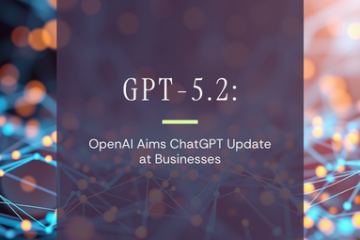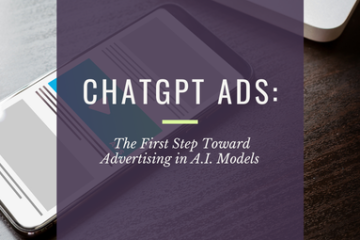
As business owners become increasingly acclimated to the new year and its developments, there is one thing that they are going to square with: progress in generative A.I.
Despite looming regulations specifically centered on generative A.I., things are still going apace over in Silicon Valley. For users of popular generative A.I. platforms like OpenAI’s ChatGPT and Google’s Bard, this means more upgrades and implementations and upscaling, oh my!
But in the midst of the constant stream of changes to A.I. platforms this year, business owners would be diligent to continue practicing caution and discipline when it comes to sharing data with certain A.I. platforms.
This is an issue worth exploring precisely because of the proliferation of upgrades and their attendant incentives to giving more data to certain A.I. platforms.
The Current State of Generative A.I.
In the last couple or few months of 2023, there were enough significant events to suggest that the state of A.I. was going to become quite interesting in 2024. Interesting in multiple senses.
One prevalent reason to believe the industry was heading into the new year with some significant battles ahead stood out.
Those battles ranged from externally wagered legal troubles to internal personnel issues.
Of the first kind, something that generated a lot of buzz not just in the U.S.A. but worldwide was President Biden signing an Executive Order (EO) that proposed a number of potentially up-and-coming rules of the game for A.I. players.
Legal Ramifications Ahead
Proposed laws mandate watermarks on A.I.-generated content, informing viewers whether a picture or piece of writing was created by artificial intelligence or not.
This aims to reduce the proliferation of misinformation online, which we are likely to witness during the upcoming year as we approach election day in the United States.
Furthering the legal woes for major generative A.I. developers is a host of lawsuits concerning the use of copyrighted works to train these A.I. artists, writers, photo generators, and the like. Their claim is that training A.I. on these works–which the A.I. may outright mimic–does not constitute “fair use” of copyrighted material, but an actual infringement.
As it turns out, there is a significant amount of real human beings that are artists writers photographers et cetera that do not appreciate tech companies using their works to
As for internal worries, the OpenAI fiasco where CEO Sam Altman was fired then rehired, with a complete changeup of the governing board, indicates a broader issue in the industry: differences in vision pertaining to how fast companies should be working to develop A.I.
They are certainly working fast and hard on generative A.I., because one of the big things to look out for is generative A.I. platforms specifically tailored for businesses.
Tailoring Generative A.I. to Business Owners
Many businesses have been using platforms like Bard and ChatGPT since their release, but the companies that offer these platforms are finding ways to make them more business-friendly.
One example of this is ChatGPT Team, which allows organizations to employ an automated “superassistant”, for $30 a month per user (or $25 a month per user if you choose an annual subscription).
This superassistant serves virtually every imaginable department within an organization, from tech support to customer service.
Data Privacy and Generative A.I.: A Closer Look
OpenAI says that it will not train its A.I. platforms on the data culled from your ChatGPT Team.
Very good, but it is still worth considering that no database is entirely free from vulnerability. For instance, cybercriminals may try to access your company’s conversation logs with ChatGPT.
If you elect to use something like ChatGPT Team, then be sure to warn your employees that they ought not use any “sensitive data” in the conversations.
For instance, asking ChatGPT to organize a bunch of credit card numbers linked with the names of clients or customers is not a good idea. If a bad apple is able to get access to such information, that could lead to serious trouble down the line.
Another caveat is to use strong passwords that you update frequently. You need these updates because when a lot of people have access to the account, that makes it that much more likely that a bad actor can get ahold of the passcode and get a look at sensitive data.
To wrap things up, the biggest lesson here is to not share with ChatGPT anything that you would share with a competitor or stranger, such as trade secrets or sensitive information about your clients or employees.





